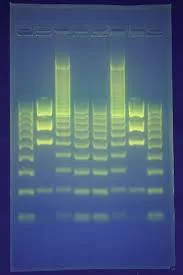Boston, March 13, 2024 (Science News): In a groundbreaking advancement in cancer research, scientists at the Massachusetts Institute of Technology (MIT) have unveiled a novel gene-editing screen capable of rapidly identifying cancer mutations, potentially revolutionizing the development of new therapies for the deadly disease. The study, published in the prestigious journal Nature Biotechnology, showcases a pioneering technique that focuses on the p53 gene, a critical tumor suppressor frequently mutated in more than 50% of cancer patients.
Traditional approaches to studying cancer mutations often involve introducing artificial versions of mutant genes. However, MIT’s innovative method, based on a variant of CRISPR genome-editing known as prime editing, circumvents this by directly editing the genome. This groundbreaking approach enables researchers to screen cells for over 1,000 different mutations of the p53 gene, drawn from the genetic profiles of more than 40,000 cancer patients.
“This technique represents a significant leap forward in our ability to understand and target cancer mutations,” remarked Francisco Sanchez-Rivera, Assistant Professor of Biology at MIT. “In one experiment, you can generate thousands of genotypes observed in cancer patients and immediately assess their sensitivity or resistance to various therapies.”
The implications of this breakthrough extend beyond basic research, offering profound potential for precision medicine. By rapidly identifying specific genetic mutations, clinicians could gain crucial insights into how a patient’s tumor will respond to particular treatments, paving the way for tailored therapeutic approaches.
In their study, MIT researchers utilized the new method to introduce p53 mutations into human lung adenocarcinoma cells, the most prevalent form of lung cancer. Surprisingly, their findings revealed that certain p53 mutations are even more detrimental than previously understood, underscoring the importance of accurate genetic profiling in guiding treatment decisions.
Looking ahead, the research team aims to explore mutations present in other cancer-associated genes, with the ultimate goal of leveraging this genetic information to personalize therapies for patients battling tumors. The potential impact of this work on improving cancer outcomes cannot be overstated, offering hope for more effective and targeted treatments in the fight against this devastating disease.











